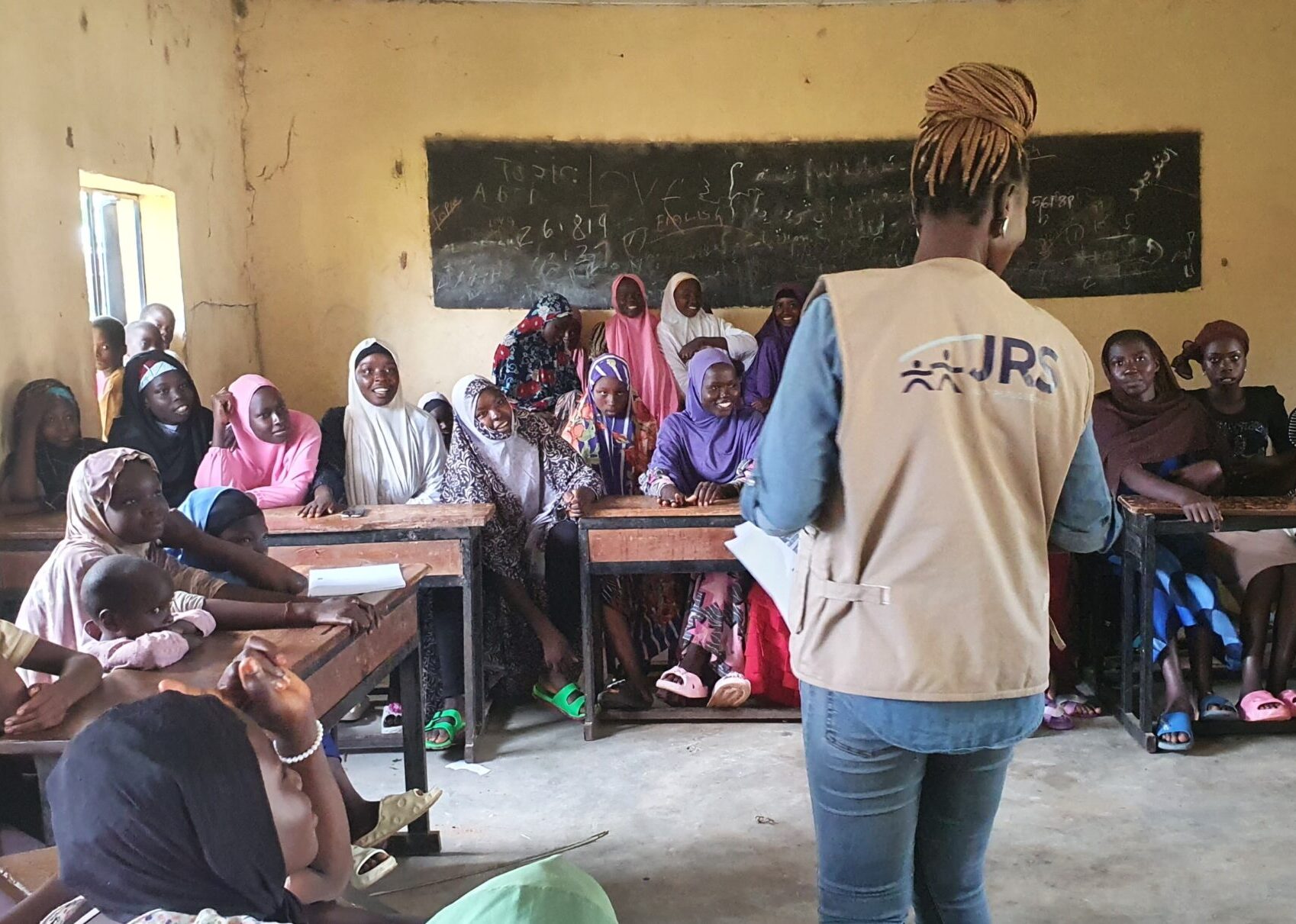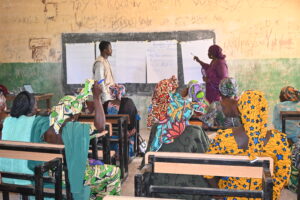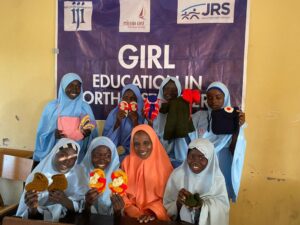
One in every five of the world’s out-of-school children is in Nigeria.
That is a heart-breaking and startling fact but with YOUR help we can change those statistics and continue to transform the lives of marginalised children.
Although lack of education is a huge issue across Nigeria, with almost 10 million children aged between 5-14 years not in school, in the north of the country, the picture is even bleaker, with a net attendance rate of only 53% (UNICEF, 2025)
This region still suffers from the Boko Haram insurgency which led to the horrific kidnapping of over 100 schoolgirls. Although formal education was their target, key infrastructure like communication masts, markets, bridges and schools were also attacked alongside the killing of hundreds of teachers.
As you can imagine, this has meant a generation of teachers has been lost and hundreds of learners have been set back due to the horrific violence of the past decade.
Sadly, trauma and violence still impacts Nigeria to this day, with Benu killings (BBC, 2025) and division between Christian and Muslim communities worsening day by day – it is incredibly heartbreaking that children are caught in the crossfire robbed of their childhoods and their right to education.
At IJI we believe ‘no one should be left behind’ with education as the vital steppingstones to brighter futures but often in the places where we work poverty and marginalization means communities become vulnerable and often displaced persons, especially women and girls, suffer the most with discrimination far too common.
Education and life skills go hand in hand in building futures and instilling confidence and a passion for innovation.
Partnered with the Jesuit Refugee Service (JRS) Nigeria we are addressing the issue of gender discrimination and the barriers to education that many children face.

A group presentation during the teachers training at Askira
Empowering learners to grow, especially girls, the Girl 4 Girls (G4G) project was established to support vulnerable children who otherwise had no opportunity to attend school.
Through careful selection based on need, 500 out-of-school girls were identified and re-enrolled in school in the first phase of the project.
Phases two and three saw another 1000 schoolgirls supported with the project tracking and monitoring their progress.
Additionally, girls received learning materials including school uniforms, sandals, school bags, books, pencils, pens, erasers, and sharpeners; they also benefited from the distribution of hygiene kits, which includes towels, detergents, soaps, reusable & disposal sanitary pads and jelly to tackle period poverty and stigma placing so many girls’ studies in jeopardy.
The G4G sessions with 1,500 learners have equipped girls with relevant life skills to build their own agency and navigate life as adolescents.
Discussion topics include: sexual reproductive rights, personal hygiene, education, child participation and girls’ rights empowering learners with the knowledge to take ownership of their own lives and invest in themselves.

Learners from IGA skills training showcase their crafts
Skills pushing back on forced marriages:
Empowerment means independence and having the tools and skills to support yourself.
As well as investment in education, Income Generating Activities or IGAs are crucial elements in the project.
IGA trainings give young people business skills to support livelihoods after completing school. The training focuses mainly on trades and crafts suited to local contexts and has major impact in supporting future entrepreneurial development.
Aishat Usman, a student of Kwaya Bura Central Secondary School in Hawul LGA, participated in the Vocational and Skills Acquisition training during the second phase of the IJM project from 2023 to 2024.
During the training, she developed a strong passion for bead-making and actively participated in every session never missing a class. She not only put extra hours in her free time for mastering baking but pushed herself to start building a business.
Aishat’s commitment and passion was rewarded and today she has emerged not only as well-renowned baker in her community but as one of the best trainees.
When the third phase of the project began, her school and teachers recommended her as an IGA facilitator. From a dedicated learner to a skilled trainer, she is now empowering her fellow students and making a lasting impact in her school and community through the craft she has mastered!
Thanks to your support amazing people, like Aishat, can make lasting impact in their communities and be the seeds for a brighter future.
For more stories and information about our education projects, click here

